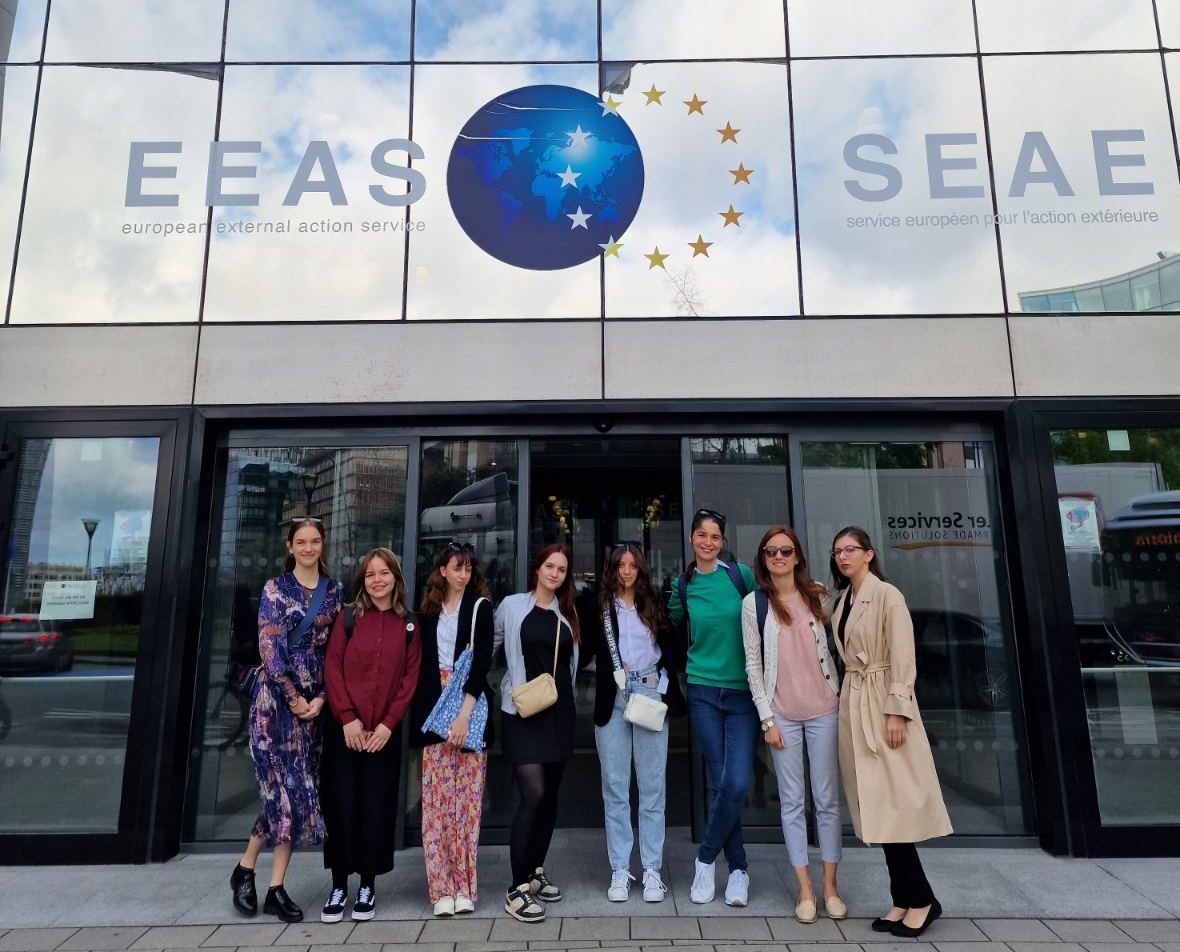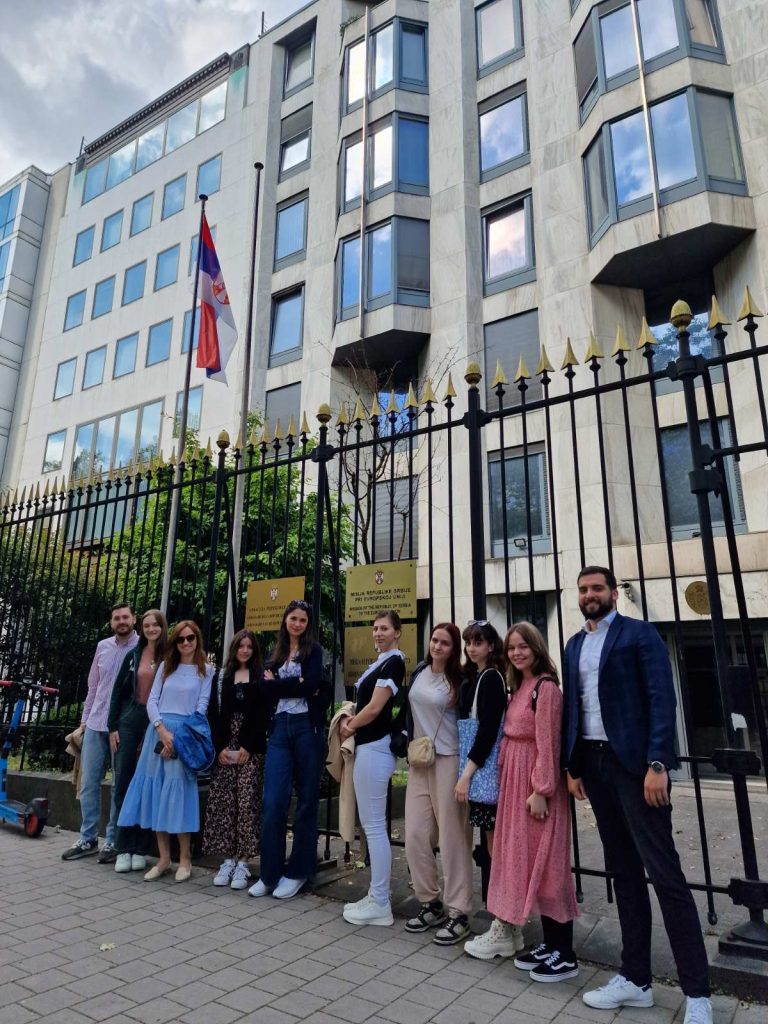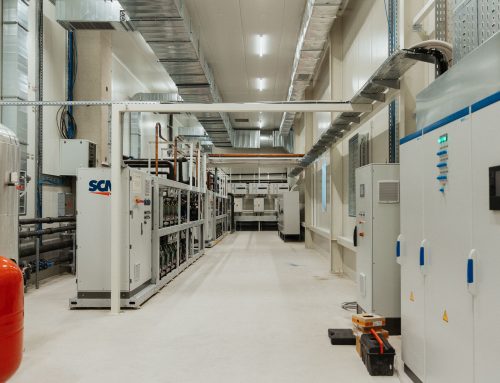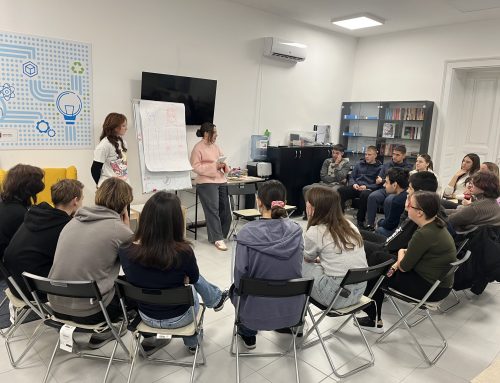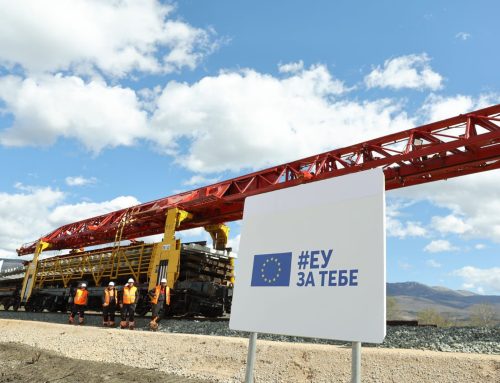The finalists of the ninth generation of the European Debate School were given the opportunity, as a reward for participating in the final debate within this program, to go on a study trip to Brussels.
Six of the most successful young debaters began researching Belgium by visiting the House of European History, where the museum provides an insight into the history of Europe as a continent, its cultural and historical significance, and part of the exhibition is dedicated to the historical and political context of the development of the European Union.
In this museum, special attention is dedicated to the region of the Western Balkans, as well as to Serbia and its importance for European cultural and historical heritage. Some of the most interesting exhibits are the Sretenje Constitution from 1835, which was modelled after the constitution of France and Belgium, as well as the “Serbian Dictionary” by Vuk Stefanović Karadžić.
A walk through the Jardin du mont des arts led the participants to Bozar Gallery, which, in addition to the exhibition space, also has a cinema hall, conference rooms and a concert hall for the Belgian National orchestra. One of the goals of this institution is the affirmation of traditional and modern art from the territory of the Balkans with the aim of promoting and integrating the countries of the Balkans into the cultural and artistic space of Europe.
Balkan Trafik Festival is just one of such projects that brings together visual, musical and film artists from the Balkans, and some of the partners of the project are the International Jazz Festival Nišvil, Sarajevo Film Fest and others.
“Our goal is to show to the citizens of the European Union the great cultural wealth of this part of Europe and its substantial influence on European art”, said Jeremy Lambert in front of Bozar Gallery.
The third day of the visit to Belgium started with a meeting at the European External Action Service (EEAS) where the young debaters had the opportunity to learn about the work of this service and the way the European Union works to promote Serbia as a candidate for membership in this community. The participants were interested to hear about the next steps in the negotiation process between Serbia and the EU, and they also highlighted what they see as the benefits of EU membership for young people.
“I think the EU is important for the academic development of every young person, because of the numerous scholarship opportunities, excellent education and later employment opportunities. Also, I really appreciate the sense of community and unity that the European Union provides to its members”, said debater Tara Stojanović.
After exchanging views with EEAS, the group had the opportunity to visit the European Directorate-General for Neighbourhood and Enlargement Negotiations (DG NEAR) where the participants received more information about the functioning of the accession negotiations, the requirements to be met for the opening of individual chapters, as well as what is necessary for their closing.
The final part of the visit ended with a trip to the European Parliament, and a meeting with the member of the Parliament Abir Al-Sahlani, who represents Sweden in the European Parliament.
The young debaters wanted to know more about the work in this institution, so Abir Al-Sahlani shared with them the story of her life, education and career, which encouraged the participants to build their careers in the field of diplomacy and international relations.
This was followed up by a meeting at the Mission of the Republic of Serbia to the European Union, where the participants had the opportunity to talk to the Deputy Head of the Mission Danijel Apostolović and the Third Secretary Đorđe Jovićević and share their impressions from the meetings in the EU institutions and get acquainted with Serbia’s view on the negotiation processes and diplomatic relations with the member states.
The European Youth Forum hosted young debaters and designed a rhetorical exercise for them, which concerned the current debate on the potential shift of the right to vote from 18 to 16 in Belgium, in order to involve young people in socio-political issues.
The visit also included a tour of one of the most beautiful medieval cities in Europe – Bruges, where the debaters saw the building of the College of Europe, known for its high-quality study programs in the field of European law, democracy and international relations.
On the last day of their visit to Belgium, the finalists of the European Debate School attended a meeting with a member of the EU-Serbia Stabilisation and Association Parliamentary Committee André De Munter, who spoke about the impact of the current political and social situation in Serbia on the negotiation process, including issues related to media pluralism, human rights, democracy and more.
“The fight for the protection of women’s rights and the fight against violence are currently hot topics in our society. When we talk about these topics, we must not forget people who do not live in big cities and do not have access to appropriate mechanisms for the protection of rights”, said debater Anđela Milovanović.
It is certain that the female debaters returned to Serbia with a better knowledge of the way EU institutions work and Serbia’s perspective on its path to EU membership. They also bring important new acquaintances with them.
This study tour as the crown of the several-month program of the ninth generation of the European Debate School was carried out with the support of the Pulse of Europe project.

